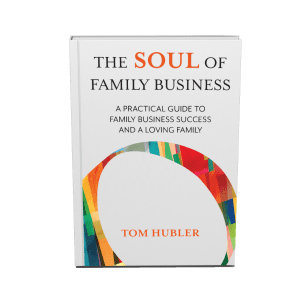The Quest For Career Fulfillment

However, there is one goal that tends to be, at best, overlooked – which is somewhat surprising, given its importance to our overall well-being. The goal in question? Career fulfilment.
What is career fulfilment?
The concept of career fulfilment is, as one would expect, a desire to feel fulfilled – in some way – by the work we do. On a basic level, fulfillment is simply a way to achieve a sense of satisfaction from your career; a satisfaction that comes not from the wage you earn and the lifestyle you are subsequently able to afford, but from the work itself.
Career fulfillment is most commonly associated with careers that serve a greater good or improve the lives of others; careers like that of Cynthia Telles, which take a passion and turn it into a vocation. However, any career can offer a sense of fulfilment; some careers are more likely to offer fulfilment but any type of career can under the right circumstances be fulfilling in its own way.
How common is career fulfilment?
Unfortunately, not particularly. A huge number of people work for their entire lives without achieving true fulfilment – and for some individuals, that works just fine. Particularly in financial and city-related jobs, many individuals choose to work extremely hard in a role they don’t really care about, with the goal of retiring early. For these people, fulfilment is not a necessary aim; the end – early retirement – justifies the means, and they are willing to tolerate even an unpleasant decade or so, as long as they meet their eventual FIRE goal.
However, for those not focused on FIRE but instead just trying to make a living, fulfilment becomes more important – but it remains incredibly rare. A surprisingly large number of people dislike their job, and only 33% of workers are fully engaged with their role; which, given that engagement is more likely to lead to fulfilment, is concerning.
Why is fulfilment so uncommon?
The reason many people work without career fulfilment varies wildly. Some people just need to earn a living; what they do, or how fulfilled they feel, is fairly unimportant. For others, the work itself does not – and cannot – offer significant fulfilment. What’s more, some people don’t even see fulfillment as particularly important; even those who are not aiming for FIRE may be more than content to simply work comfortably, earning what they need to live on, and look for nothing more.
As a result, career fulfillment is best thought of as a concept that is important for some people. For others, it would be nice to have, but far from crucial – we all have different priorities in life, after all. However, this does beg the question…
What happens if fulfillment is important to you, but your career is not fulfilling?
The above circumstance is the worst case scenario: you may be someone for whom fulfillment is incredibly important, but you do not find that your existing role – or even your entire career – offers this fulfillment. The consequences of working in such a scenario can be extremely challenging, leading to dissatisfaction, unhappiness, stress, and even an exacerbation of underlying health conditions.
How can you tell if you are lacking in career fulfillment?
Common signs of poor career fulfilment include:
- Disinterest in the work itself; you do not feel excited or enthused by the work you have to do
- Frequent absenteeism; you will more readily take sick days and will usually try to use all of your available vacation days
- Malaise or even depression during the working week, which tends to lift in the evenings or on weekends – i.e. times when you are not working
What can you do if you are not achieving career fulfilment, but want to?
First and foremost, it’s worth considering other methods of achieving a sense of fulfilment and satisfaction outside of the workplace, as some people find that this can help them to better manage their overall career concerns. After all, if your hobbies or out-of-work activities offer a sense of fulfilment, then achieving this from your career may become less important. You could, for example, consider volunteering or fundraising for a cause close to your heart in your spare time, and switch to trying to see the work you do as a means to an end.
However, if you find the above is not sufficient – or you simply want to achieve fulfilment in your career rather than your personal time – then switching careers is likely to be the best choice.

As we touched on above, while careers that can be considered meaningful are arguably more likely to offer career fulfilment, any career may be suitable. It’s just important to try and focus on a career where you feel that you would be happy with the work itself; where you feel that your contribution would be valuable (not necessarily in terms of money) in some way. To that end, it might be worth considering volunteering initially, so you can try out a few different ideas and see which affords you the most fulfilling experience.
In conclusion
Career fulfilment is not an essential – many people can spend their entire working lives without career fulfilment, but remain happy and content with this fact. However, if career fulfilment is important to you personally, then making a change that allows you to achieve the fulfilment you require could well be the right choice for your future happiness and well-being.

 As a fan of classic films, I am always searching for films that apply to family businesses. I recently viewed the 1936 film, Dodsworth, that stars Walter Houston in the title role, as well as Ruth Chatterton and Mary Astor. Dodsworth, an entrepreneur, owns an automobile manufacturing company, who sells his company and retires without a plan for his future—not unlike many real-life entrepreneurs.
As a fan of classic films, I am always searching for films that apply to family businesses. I recently viewed the 1936 film, Dodsworth, that stars Walter Houston in the title role, as well as Ruth Chatterton and Mary Astor. Dodsworth, an entrepreneur, owns an automobile manufacturing company, who sells his company and retires without a plan for his future—not unlike many real-life entrepreneurs.
 According to an Everest College Survey, 83% of US workers are suffering from stress at work, which is often related to a low salary, too many tasks, a lack of job security, a poor work-life balance, or a lack of professional developments.
According to an Everest College Survey, 83% of US workers are suffering from stress at work, which is often related to a low salary, too many tasks, a lack of job security, a poor work-life balance, or a lack of professional developments. Shainaz Firfiray is an assistant professor in the Organisation and Human Resource Management Group at Warwick Business School. She received her PhD in management at IE Business School, Spain. Her research interests include work-life balance, social identity, and workplace diversity.
Shainaz Firfiray is an assistant professor in the Organisation and Human Resource Management Group at Warwick Business School. She received her PhD in management at IE Business School, Spain. Her research interests include work-life balance, social identity, and workplace diversity.